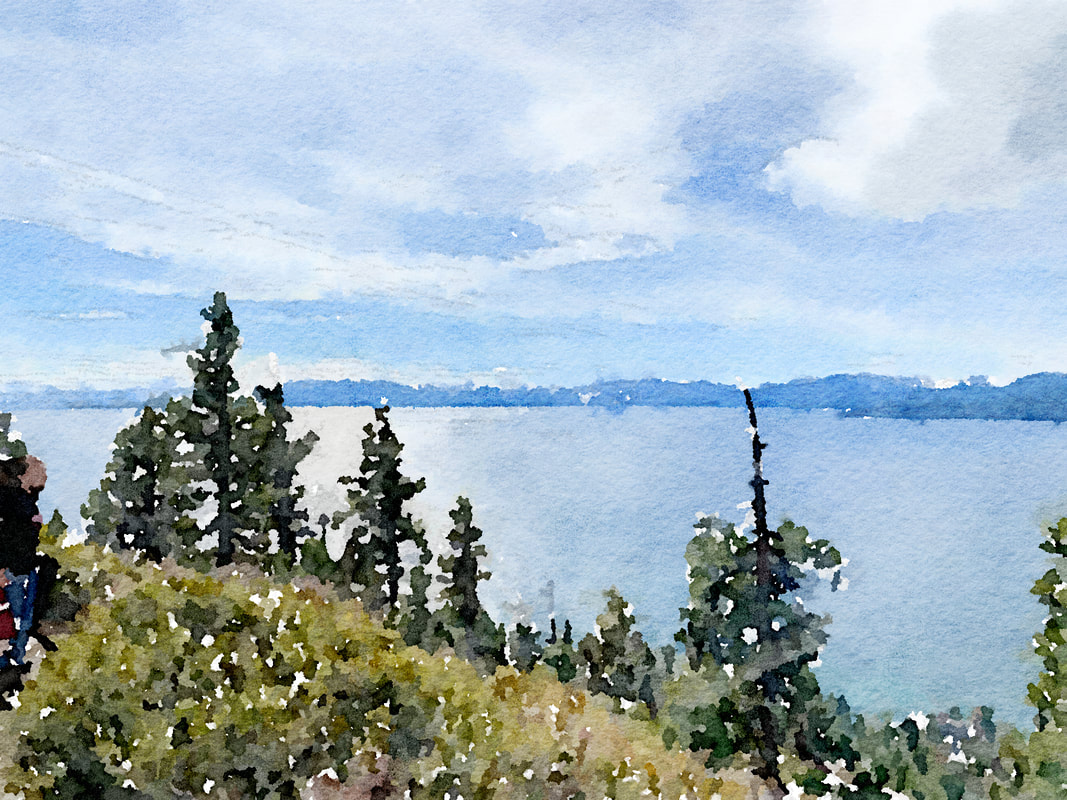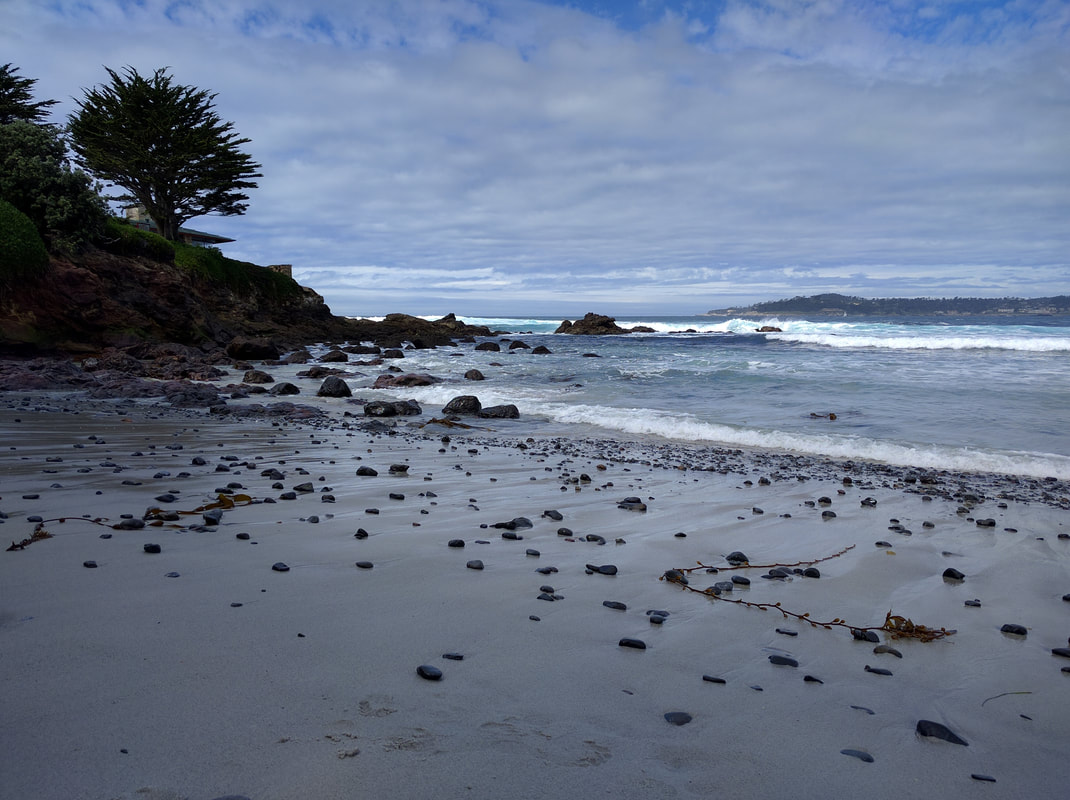|
For people who grow up under difficult circumstances having children can feel like a really big choice to make. And part of that choice depends on the confidence we have that we can do parenting differently than our parents did. But we CAN give our children a kind of childhood that feels healthier, with more good relationships and self-confidence than we had.
(If you'd rather watch the video than read, you can go to the Landscape of Mothers YouTube channel and watch this video). Once we find ourselves as parents it's likely that we're still struggling with some of the effects of our childhood experiences. We have internalized a lot of what we saw and understood when we were young and we don't know it's there anymore until we're exhausted, overwhelmed, and stretched too thin. And that's when all of our intentions to do things differently implode. We can't parent through our will anymore and we revert to the strategies our parents used because they are the most available in our tired brains. For some of us this turns into a bad cycle. One where we feel like we've failed, we're not doing a good enough job, and the shame and sense of failure overtake us. When we hear ourselves sounding like our parents, and the disappointment in our ability to parent arises, we might overcompensate. This cycle creates instability, a sense that we can't rely on ourselves to behave as we intend to, and for our children they become uncertain of what to expect from us. What we are really looking for is the stable ground in the middle where we are present to our own inner workings and feelings, as well as to the needs of our child in front of us. But how do we get there AND STAY THERE! Short answer is we don't always. But there is the possibility of being on that stable present parenting ground much of the time (enough of the time that our children can form some expectations around their needs being met). The enemy of the solid ground is the shame and urgency that comes when we blow up and do or say something we regret. We've treated our children like we were treated, instead of from what's really important to us. There's a deep discomfort that we want to get away from. So we're likely to try to patch things up as quickly as possible through overcompensating. This tends to feel yucky too, so we try to move on as fast as possible. But what we all most need in that moment is presence. We need that for ourselves, and our kids need it from us. Our ally here is, paradoxically, slowing down. It helps to drop any pieces of urgency that we can, that are coming from our desire to rush past this discomfort, and to sit with it a moment. When we develop an Inner Mother who is capable of tending to our own disappointment and discomfort we are doubling down on that solid ground we are always trying to cultivate. We are bringing our distressed Inner Child to that landscape, as well as our child in front of us. This is growing up with our children. This is why having children can be considered a spiritual practice. This is why it can be healing for those of us with relational wounds from our family of origin to have children. There are other ways to do it, but if you find yourself in this cycle of "up and down" parenting know that this dedication to parenting through presence and relationship is healing to your Inner Child, your family line, and to your ancestors. It is doing repair on many levels. Parenting from this solid ground with presence is the best way to build a relationship with your children that will last through the developmental stages as they grow, and on into their adult years. Most often when I hear of people who aren't in contact with their parents anymore it's because these relational tasks were left undone. Because they rushed past the difficulties and wounds of parent-child relationships, and the adult children feel like their parents don't see or acknowledge their experience. If this feels like a struggle that you see in your friends, please forward this post to them to let them know they're not alone. And if this is you, and you want some structure for this journey you can find my mentoring services on my website.
0 Comments
Oh so many heartbreaks in a human life. How do we do it? How do we keep living with broken hearts? How do we ever resolve them? Forgiveness? Strength? Moving on? Honestly, I've learned so much about tending to heartbreak lately. Certainly the current state of the world gives us all fodder for heartbreak work. It returns us to our smallest selves, our vulnerable and soft places. These places are not aligned with the "just do it" mantra of our society... the encouragement to just keep going... to not pay attention to the stuff that bothers us. But, one thing I do know, is that if we don't tend to our heartbreaks, they accumulate. Tending opens a soft space for being... like laying on the couch with a million blankets, wrapping up in a comforting gentleness, a bit like being held like a small child. Yes, to tend is to hold gently. It is to be with, to sit down next to something or someone and hold their hand. It is not to fix, or to advise. The wisdom of tending gives space to the heartbreak to do its work. To lead the heartbroken through the landscapes of grief and anger... arriving at a hill with a bit of a view... a place that provides context. It takes time to make this journey, and tending is the attention we give that liminal space so that we can find our way through. This is deeply important work. the tending of heartbreak.
I have always struggled with the concept of forgiveness. And, I can tell you that I've only every found genuine forgiveness (or anything that could look like it) on the other side of tending to heartbreak. Tending takes showing up again and again, for things that feel like nothing... sitting under the tree, lighting the candle, or sorting stones. Tending is being with a process at the particular place that it is, and allowing it to run its course on its own time. This is hard. It takes longer than you think it will. It moves at the pace of the natural world. And it cannot be rushed. Tending is also one of the biggest gifts we can give to one another. It builds relationship because it moves slowly and is done one small bit at a time. It creates reliability because it requires us to come back over and over. And tending creates connection because it is based in care and devotion. The Ocean Mother is an archetypal landscape mother. In general, landscape mothers help us locate ourselves on the diverse landscape of what it is to be a mother. The Ocean Mother, in particular, can be of assistance when we are wondering how we can be with the unknown, unknowable, mystical aspects of parenting. She can help us explore our own depths and find our own hidden potential through the things we are already grappling with in our role of mother. The Ocean Mother naturally carries the expansive possibility of life, it is where life originated. She contains all of the potential... and so she can inform our process of looking forward and thinking about what kind of parenting legacy we want to leave.
What kind of characteristics do we want our adult children to have? How do you want them to relate to others? What kinds of things do you want them to value? How do you want them to think about themselves as humans... partners... citizens? And, in light of all of that, what does it mean you need to teach, provide examples of, hold as valuable in your life? This is the real spiritual teaching of being a parent... that it's not what we say, it's what we do. They know when we're saying one thing but acting differently... and it compromises trust. So, the spiritual practice that is nurtured by The Ocean Mother is the depth... the ability to shift directions toward increasing alignment with what we really believe in and hold dear. So, if we tell our children we value open time to be creative, are we giving that to ourselves? Or are we running around trying to do all of the things and just saying that we want THEM to spend creative time? |
Author: Jill CliftonHi, I'm Jill, creator of Landscape of Mothers. I'm here to talk about breaking family patterns of harm so that we can parent our children in ways that support them becoming fully themselves. I'm happy to have you here! Archives
June 2024
Categories
All
|


 RSS Feed
RSS Feed